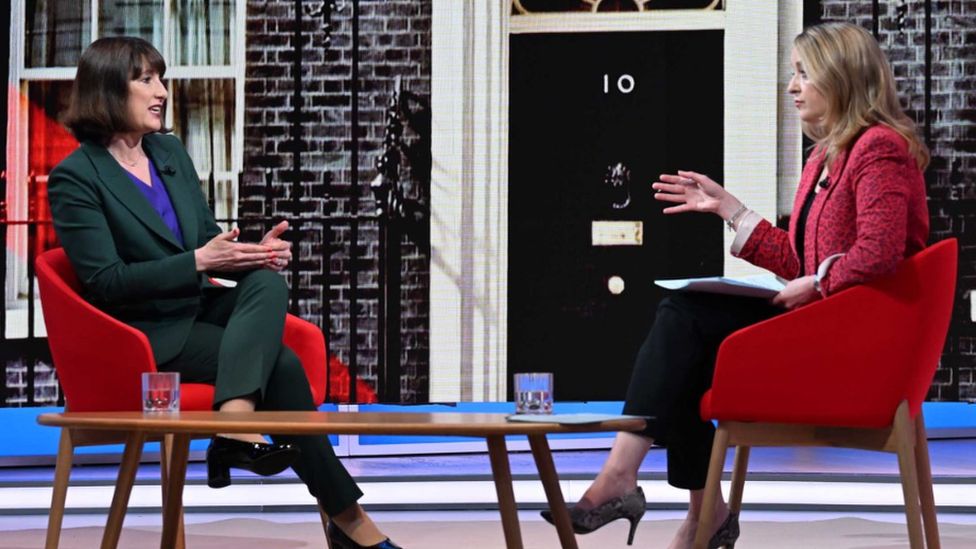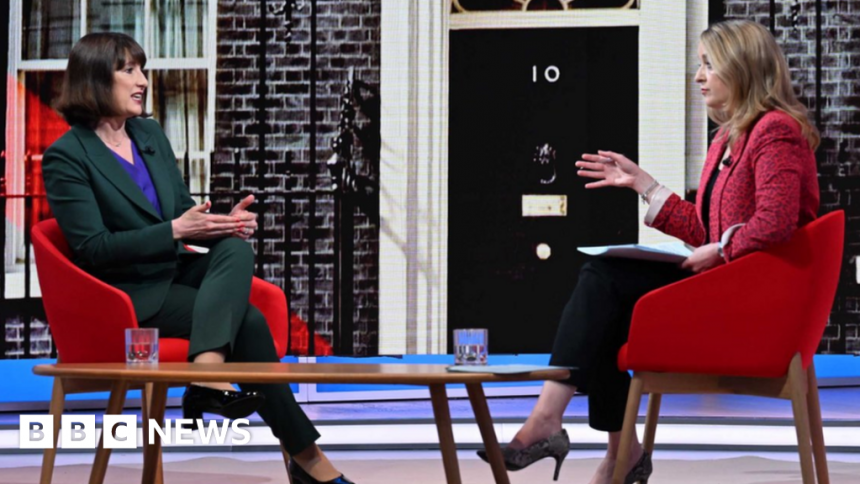Labour’s Rachel Reeves rules out increasing income tax or NI
-
Published

Labour has said there will be no rises in income tax or national insurance if it wins the general election – but spending cuts have not been ruled out.
Shadow chancellor Rachel Reeves told the BBC’s Laura Kuenssberg she did not want to make any spending cuts.
But she was “under no illusion about the scale of the challenge” and would face “difficult decisions”, she said.
The Conservatives have cut national insurance and said they aim to scrap it when circumstances allow.
Labour supported lower taxes, Ms Reeves told Sunday with Laura Kuenssberg, but she would not put forward “unfunded proposals”, she added.
Pressed repeatedly on her tax plans, she said: “What I want and Keir [Starmer] wants is taxes on working people to be lower and we certainly won’t be increasing income tax or national insurance if we win at the election.
“We opposed the increases to national insurance when Rishi Sunak put those forward as chancellor.
“Unlike the Conservatives, who have already racked up £64 billion of unfunded tax cuts in just three days of this campaign, I will never play fast and loose with the public finances, I will never put forward unfunded proposals.”
Ms Reeves promised there was “not going to be a return to austerity”, saying commitments to boost frontline services were a “down payment on the changes that we want to make”.
“But in the end we have to grow the economy, we have to turn around this dire economic performance.
“I don’t want to make any cuts to public spending which is why we’ve announced the immediate injection of cash into public services,” she added.
“So that money for our NHS, the additional police – 13,000 additional police and community officers – and the 6,500 additional teachers in our schools, they are all fully costed and fully funded promises because unless things are fully costed and fully funded, frankly, you can’t believe they’re going to happen.”
Ms Reeves ruled out setting a timetable for when a Labour government would increase defence spending to 2.5% of gross domestic product (GDP), a measure of the size of the economy, saying there would be a review of defence costs as, she claimed, they had “got out of control under this government”.
A spending review would take place if Labour won the election, the shadow chancellor said, and a “fiscal lock” would be introduced, meaning any significant and permanent tax and spending changes would require a full accompanying forecast from the independent Office for Budget Responsibility (OBR).
The OBR normally needs ten weeks notice to produce a forecast, and scrutiny of opposition party plans is not allowed.
This means there would need to be a delay between the result of the general election and any spending actions, in order for the OBR to comprehensively incorporate and evaluate those policies, if Labour is to follow through on its commitment for a full process.
-
-
Published1 February
-
-
-
Published17 January
-
-
-
Published31 January
-






